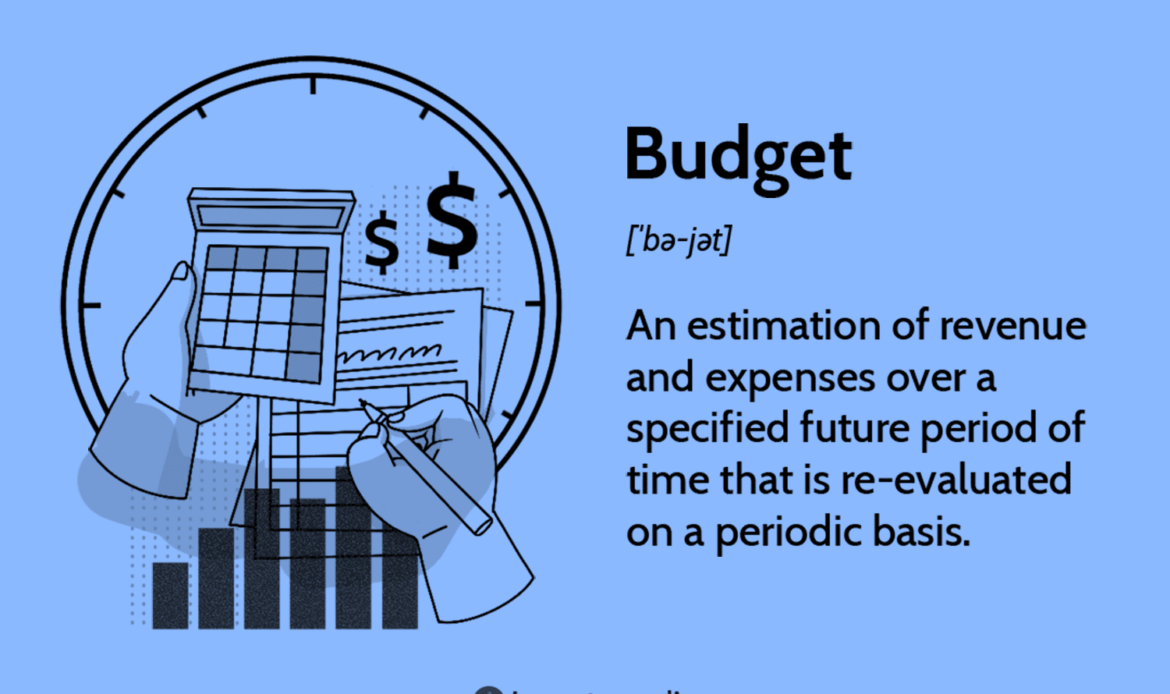One of the fundamental tools for managing finances is budgeting. A budget is a plan that helps individuals allocate their income towards various expenses, savings, and investments. Businesses and governments rely on budgets to track revenues and expenditures, but you might be most familiar with a budget as a tool for managing your finances.
Different budget systems and methods exist. This guide can help you start a budget or understand why it is essential.

Understanding the Importance of Budgeting
Budgeting is not just about keeping a record of your expenses; it’s about making purposeful decisions on allocating your financial resources to accomplish your goals and priorities. Whether you’re saving for a house, education, retirement, or just trying to manage your finances, having a well-planned budget can make a significant difference in achieving your financial objectives.
5 Key Components of a Personal Budget
1. Income
The first step to creating a budget is calculating your total income, including salary, wages, bonuses, freelance earnings, and other sources. For irregular income, estimate an average monthly income.
2. Fixed Expenses
Fixed expenses are regular monthly payments that usually stay mostly the same. These include things like rent or mortgage payments, utility bills, insurance premiums, and loan repayments. Fixed expenses are essential to include in your budget because you can’t negotiate or avoid them.
3. Variable Expenses
Variable expenses are costs that change every month, like food, transportation, entertainment, and eating out. Estimating an average monthly amount is important by looking at past spending patterns.
4. Savings and Investments
Saving and investing a portion of your income is essential for building wealth and achieving long-term financial goals. This includes putting money into emergency funds, retirement accounts, education savings, and other investments. By doing this, you can secure your financial future and ensure you are prepared for unexpected expenses. Regularly contribute to these funds and investments to ensure they grow over time.
5. Debt Repayment
When you have debts to pay off, such as credit card balances, loans, or mortgages, it’s essential to include a separate category in your budget for debt repayment. To avoid accumulating interest charges over time, prioritize paying off high-interest debt. It means organizing your payments in a way that helps you manage your debt effectively. By doing so, you can take control of your finances and work towards becoming debt-free.

Read: 8 ESSENTIAL MONEY MANAGEMENT TIPS
4 Simple Ways To Create An Effective Budget
1. Track Your Expenses
To better understand where your money is going, start by tracking your expenses for a few months. You can record your expenditures using apps, spreadsheets, or pen and paper. Keep it simple and organized, and remember to prioritize the most critical information first.
2. Set Financial Goals
Setting both short-term and long-term goals regarding your finances is essential. These can include saving for a vacation, buying a car, or planning for retirement. Having specific goals will help you prioritize your spending and stay motivated to stick to your budget. Remember to keep your goals in mind when making financial decisions.
3. Allocate Your Income
Start by understanding how much money you receive and how much you spend. Then, divide your income into categories based on what matters most. Try to balance your budget so your expenses don’t exceed your income.
4. Monitor and Adjust
It’s essential to regularly check your budget to track your progress and make adjustments if necessary. As life circumstances and financial priorities change, it’s vital to adapt your budget accordingly.
Read: Fintech Platforms Revolutionizing Savings Culture in Nigeria and Africa
5 Tips for Successful Budgeting
1. Live Below Your Means: To avoid overspending, focus on what you need versus what you want, and save money whenever possible. Kill that “if I perish, I perish” urge. Remember to prioritize your needs first.
2. Build an Emergency Fund: It is important to set aside a portion of your income for unexpected expenses. An emergency fund can help cover costs such as medical bills, car repairs, or job loss.
3. Automate Savings: Automate your savings by setting up automatic savings plans, which consistently direct a portion of your income towards savings and investments without manual intervention.
4. Seek Financial Education: Learn about personal finance, investment strategies, and money management to make smart financial decisions.
5. If you’re struggling with your budget, consider finding an accountability partner to help keep you on track. They can give you the encouragement, advice, and motivation you need to stay within your budget plan.
Remember, budgeting is not about deprivation but about making conscious choices that align with your values and aspirations. Start today and take the first step towards financial empowerment and freedom.
